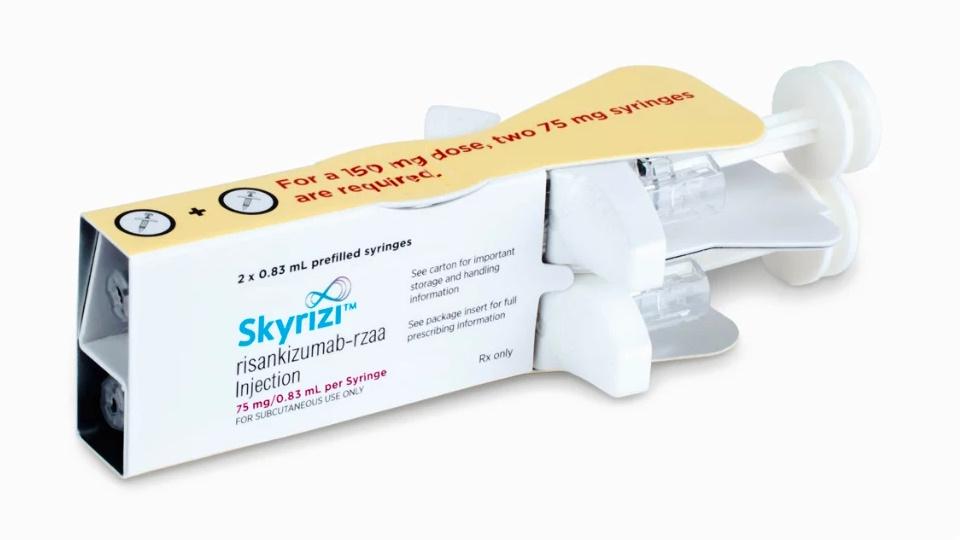AbbVie’s Skyrizi bests Stelara in Crohn’s contest

AbbVie has built the case for its IL-23 inhibitor Skyrizi as a treatment for Crohn’s disease, saying its drug was more effective than Johnson & Johnson’s widely-used Stelara in a head-to-head trial.
The results of the SEQUENCE study were presented for the first time at the United European Gastroenterology (UEG) Week conference over the weekend and showed that Skyrizi (risankizumab) was significantly better than J&J’s IL-12 and IL-23 inhibitor at achieving endoscopic remission at week 48, with a 32% and 16% of patients, respectively, achieving that goal.
On the second primary endpoint of clinical remission based on Crohn's Disease Activity Index (CDAI) scores at week 24, AbbVie’s drug was found to be non-inferior to Stelara (ustekinumab) with a rate of 59% versus 40% for the control therapy.
AbbVie said its drug was also superior to Stelara on all secondary endpoints, including CDAI clinical remission at week 48 and steroid-free clinical remission at the same time point.
Both drugs were given as a subcutaneous injection every eight weeks after a lead-in period of intravenous infusions in the study, which involved 527 adult patients with moderate to severe Crohn's who had a history of one or more failed anti-tumour necrosis factor (TNF) therapies.
Stelara was first launched in 2009 and has been J&J's top-selling drug since 2019, with sales reaching $9.7 billion last year across its approved indications in Crohn's, ulcerative colitis, psoriasis and psoriatic arthritis.
Skyrizi meanwhile was first launched in 2019 as a treatment for psoriasis and has since had its indications extended to include psoriatic arthritis and Crohn’s, with phase 3 data also in hand as an ulcerative colitis therapy.
Sales reached $5.2 billion last year, and AbbVie has previously predicted that Skyrizi and oral JAK inhibitor Rinvoq (upadacitinib) will collectively reach peak sales of $21 billion in 2027, a key element in its plan to offset falling sales of anti-TNF blockbuster Humira (adalimumab) now that biosimilars have reached the market.
Humira has been a mainstay of Crohn’s therapy for many years, and the advent of cheaper biosimilars has started to dent the sales growth of other therapies, including Stelara and Takeda’s α4β7 integrin blocker Entyvio (vedolizumab), although the newer drugs have focused on TNF-refractory patients.
Skyrizi is facing additional competition in that category, including from J&J’s Stelara follow-up Tremfya (guselkumab), a straight IL-23 inhibitor, and potentially Eli Lilly’s IL-23 drug mirikizumab which helped patients with Crohn's achieve long-term remission in the phase 3 VIVID-1 trial reported last week.













